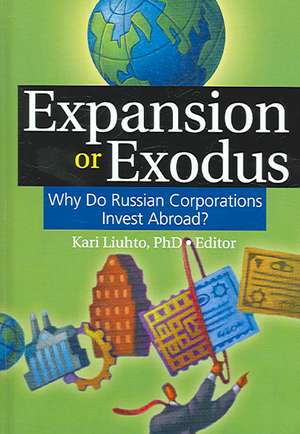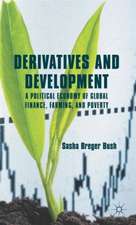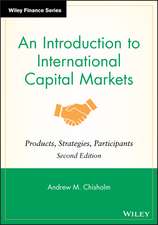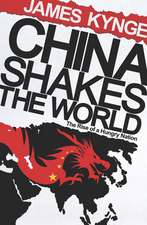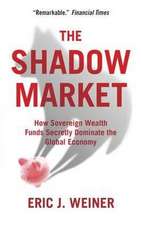Expansion or Exodus: Why Do Russian Corporations Invest Abroad?
Editat de Kari Liuhtoen Limba Engleză Hardback – 17 iul 2006
Since the collapse of the former Soviet Union, tremendous changes have taken place in the Russian Federation’s trade relationship with other countries—especially with former allies. Expansion or Exodus examines how and why Russian corporations invest outside the country and why most of that money remains abroad as the growth and performance of these companies increases at an accelerated rate. As the Federation moves closer to joining the World Trade Organization, this timely book provides a global view of Russia’s outward expansion, exploring the operations of Russian firms in old, new, and forthcoming European Union member states.
Russian corporations have invested 50-70 billion USD abroad in the last five years, with global energy giant Gazprom leading the way. Although some of the Russian money has returned home, most of it remains abroad, largely in the EU and the United States. Many ex-socialist countries fear the Russian government is using its energy companies as foreign policy tools and in some cases, those fears have been grounded. But the outward expansion of Russian firms has become less motivated by politics as non-energy-related companies have begun their internationalization.
Expansion or Exodus examines the vital issues surrounding Russia’s outward foreign direct investments, including:
- how a lower-middle income country has become a net capital exporter
- how larger export-oriented Russian companies have used Germany as entry to Europe
- how Russian direct investments in Poland led to corruption and political involvement
- why foreign direct investments in the Baltic States have been met with suspicion
- why natural resource-based companies have been main drivers of international growth of Russian economy and how manufacturing and telecommunication industries are catching up
- the development of a Lithuanian oil refinery from state-ownership to privatization by an American corporation to acquisition with Russian capital
- the international activities of the leading Russian companies in several industrial sectors
- the majors factors that form contemporary Russian business culture
- the negative features of receiving Russian investments
- the outward internationalization of Russia’s telecommunication company Mobile TeleSystems (MTS)
- and much more
Preț: 764.34 lei
Preț vechi: 1154.65 lei
-34% Nou
Puncte Express: 1147
Preț estimativ în valută:
146.26€ • 153.09$ • 121.73£
146.26€ • 153.09$ • 121.73£
Carte tipărită la comandă
Livrare economică 31 martie-14 aprilie
Preluare comenzi: 021 569.72.76
Specificații
ISBN-13: 9780789032850
ISBN-10: 0789032856
Pagini: 164
Dimensiuni: 156 x 216 mm
Greutate: 0.46 kg
Ediția:1
Editura: Taylor & Francis
Colecția Routledge
Locul publicării:Oxford, United Kingdom
ISBN-10: 0789032856
Pagini: 164
Dimensiuni: 156 x 216 mm
Greutate: 0.46 kg
Ediția:1
Editura: Taylor & Francis
Colecția Routledge
Locul publicării:Oxford, United Kingdom
Cuprins
- Foreword (Kari Liuhto)
- Introduction (Erdener Kaynak)
- Outward Foreign Direct Investment from Russia in a Global Context (Kálmán Kalotay)
- An Overview of Russia’s Largest Corporations Abroad (Peeter Vahtra and Kari Liuhto)
- Russian Companies in Old EU Member States: The Case of Germany (Andreas Heinrich)
- Russia’s Foreign Direct Investments in New EU Member States: The Case of the Baltic States (Kaarel Kilvits, Alari Purju, and Sirje Pädam)
- The Role of Russia in the Lithuanian Oil Business: A Case of Mazeikiu Nafta (Manuela Tvaronaviciene and John Saee)
- Russian Direct Investments in Poland: A Case of Lukoil (Malgorzata Runiewicz)
- Yukos’ Stake in Slovak Transpetrol (Viera Pochybova)
- Russian Companies in Forthcoming EU Member States: A Case of Lukoil in Bulgaria (Peter Zashev)
- Russian Telecommunication Company MTS Goes the CIS (Nikita E. Lisitsyn, Sergei F. Sutyrin, Olga Y. Trofimenko and Irina V. Vorobieva)
- Index
- Reference Notes Included
Descriere
Expansion or Exodus examines how and why Russian corporations invest outside the country and why most of that money remains abroad as the growth and performance of these companies increases at an accelerated rate.
